In the 400 years since its signing on November 21, 1620, the Mayflower Compact has become a nearly ubiquitous part of American history. Yet while the story of the Compact might feel like folklore to many Americans today, the document’s creation was a largely spontaneous decision, the work of an uneasy coalition of Pilgrims and other travelers all uncertain about their future in a new land. What resulted was a revolutionary, if flawed, call for self-governance, which would go on to have a profound influence on American society.
Despite how often the story of the Plymouth Colony has been told, there are still finer points of the narrative that are often overlooked. Almost everyone knows about the Pilgrims who embarked on the journey, a group of religious separatists who sought to leave Anglican England behind. The Pilgrims signed a contract with the Virginia Company to establish their own colony near the Hudson River (which at that time was part of Virginia), and agreed to share the profits from the colony with the stockholders who financed their journey. However, in order to ensure that their voyage across the Atlantic would be a success, the Pilgrims enlisted an assortment of other people — merchants, craftsmen, workers, indentured servants, and orphaned children —to travel along with them on the Mayflower. In total, 102 passengers were aboard the ship when it set sail for America. Of that total, only 41 were Pilgrims. The other 61, while still searching for a better life on the new continent, did not share the same goal of separating from the Church of England. As a result, the Pilgrims simply referred to this group of fellow passengers as “strangers.”
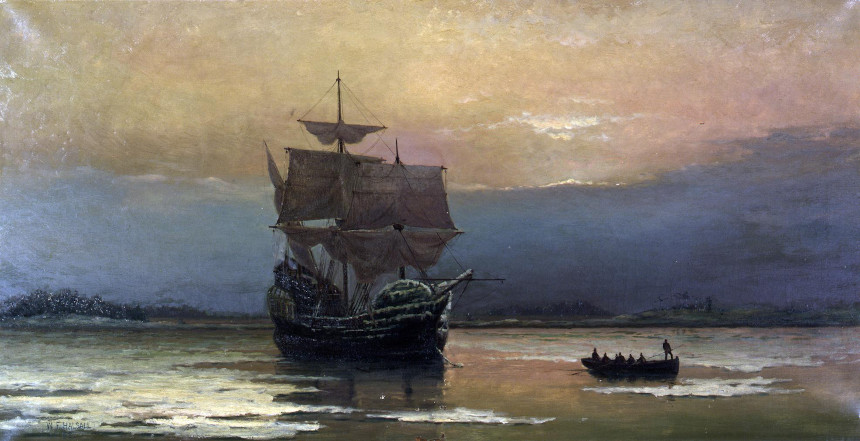
After two months on the “vast and furious ocean,” the Mayflower finally arrived in America. Yet before anyone could celebrate, the ship’s disparate passengers had to remedy a problem that had developed over the course of their journey. Bad weather on the Atlantic had knocked the Mayflower hundreds of miles of course, leading the ship to land in Massachusetts instead of Virginia. Discord ensued.
The “strangers” argued that since they had arrived at the wrong destination, the Virginia Company contract they signed back in England was now void. They claimed that they were outside of the Company’s territory, and therefore they were not beholden to the rules of any government. As Pilgrim leader William Bradford later wrote, “several strangers made discontented and mutinous speeches.” If nothing was done soon, the colony could have failed entirely within minutes of the Mayflower’s arrival.
Luckily, multiple passengers decided to draw up a contract that would formally bind the Pilgrims and the “strangers” together. Before even stepping off the Mayflower, a document was drafted and signed by many of the surviving male travelers, stating that everyone in the new colony would abide by a shared set of laws. This agreement would later become known as the Mayflower Compact (the Pilgrims themselves, however, never referred to it by that name).
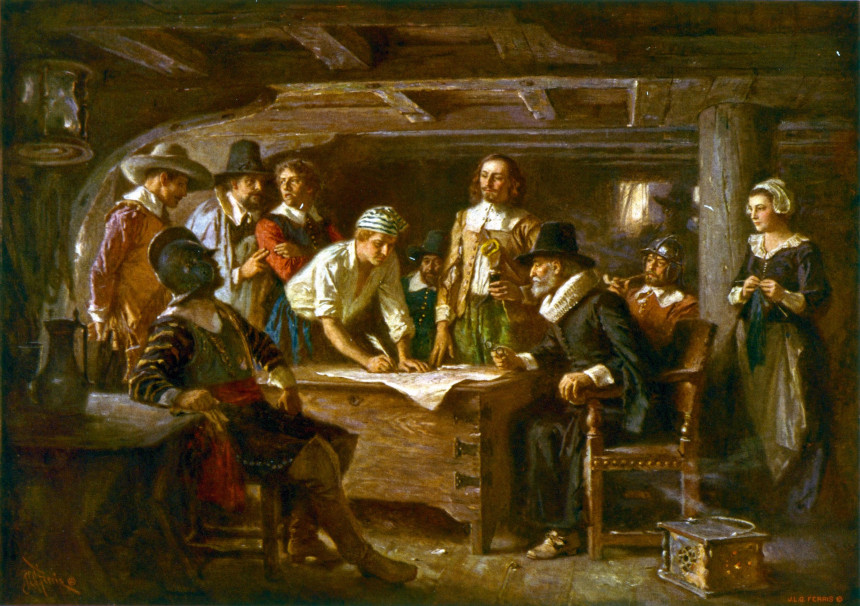
The Mayflower Compact was in no way a declaration of independence; it quite clearly began with a statement of loyalty to King James of England, as well as a commitment to God and Christianity. However, the document took on a character of its own with the passengers’ commitment to combine themselves “together into a civil body politick” and abide by the same “laws, ordinances, Acts, constitutions, and offices.” The document concluded by claiming that its ultimate goal was to further “the general good of the Colony; unto which we promise all due submission and obedience.”
While the Magna Carta had established the concept of rule by law in England 400 years earlier, that law could only be created by a king. With the Mayflower Compact, the Pilgrims and “strangers” were not committing themselves to follow rules made by a monarch who claimed to have the divine right to rule, but rather laws that they would make for themselves. In this way, the Mayflower Compact was a radical departure from the concepts that dominated European states, and represented a new model of consensual government distinct from that of the old world. The document asserted that a covenant between people themselves could serve as the foundation of a government, placing the Mayflower Compact in a secular tradition of social contracts despite the importance religion had on its creators. In the coming decades, figures such Jean-Jacques Rousseau, John Locke, and eventually the Founding Fathers asserted their own ideas about consensual government, ideas that further highlighted the revolutionary nature of action taken by those on the Mayflower.
Yet while the Mayflower Compact was ideologically incredible in its form and content, the document proved itself to be quite flawed in execution. Even though the colonists remained united through their shared commitment to a set of laws, the quality of life in the young Plymouth colony was utterly poor. Within a single year, more than half of the settlers fell ill and died, victims of the first of many epidemics that would ravage the settlement. This constant death presented the Plymouth colony with a near perpetual shortage of labor, an issue that would continue even as the settlers began to find their footing.
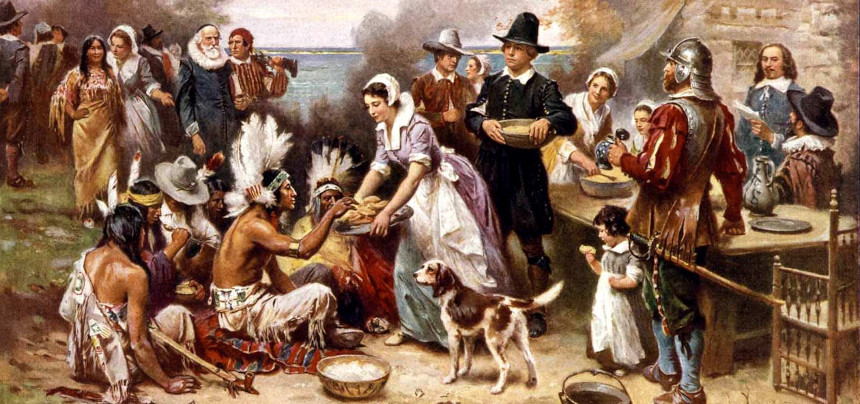
In the coming decades, the colonists actively recruited more indentured servants from England, Scotland, and Ireland. Even though two indentured servants were among the original signers of the Mayflower Compact, the new men brought to the colony were not always afforded the same privileges that other colonists possessed. As Jillian Galle details in her article Servants and Masters in the Plymouth Colony, “servants could be branded, whipped, fined, and killed for their actions,” and were subject to “complicated and often contradictory laws” regarding their work and eventual freedom. Additionally, despite the Plymouth Colony’s famed good relations with Native Americans (a fact that serves as the inspiration for Thanksgiving), Galle reports at least one instance of a Native American — Thomas Wappatucke — being sold into slavery by colonists in Plymouth. Recent research has also shed a light on the presence of Black slaves in Plymouth during the colony’s later years, again demonstrating how the Mayflower Compact’s conception of consensual government was limited in scope.
Women were also excluded by the language of Mayflower Compact; none of the 19 women aboard the ship were not allowed to sign the document. The colony’s early years were disproportionately hard on women; 78 percent of the female settlers died during the first winter alone. Even during times of celebration, the women of Plymouth were marginalized. Of the 50 colonists who attended the first Thanksgiving feast, only four were married women. They were tasked with watching over the 25 children present.
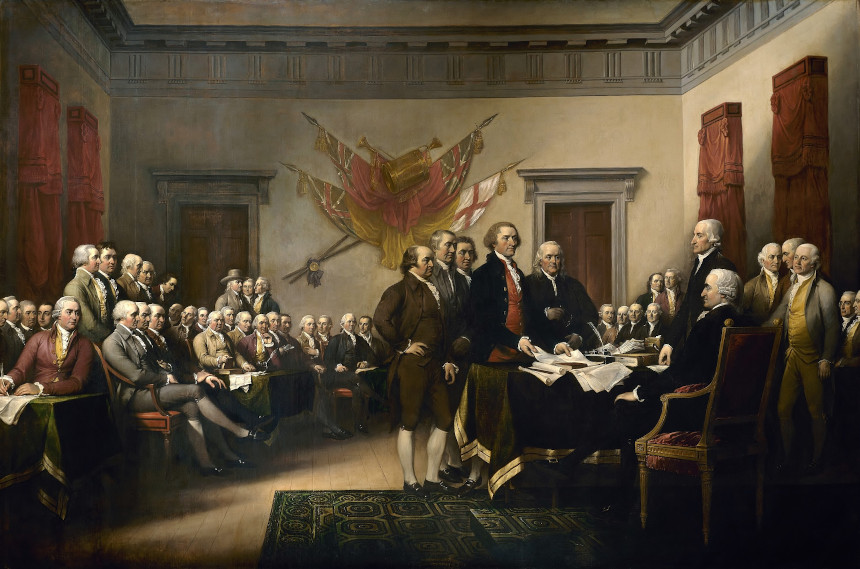
The Mayflower Compact was the official governing document of the Plymouth Colony until it joined the larger Massachusetts Bay Colony in 1691. Yet even after this change, the legacies of the Compact — both positive and negative — lived on in the documents that it eventually inspired. After the Pilgrim’s initial journey, numerous other groups of Dutch and English settlers came to the new world (largely to avoid persecution in their old countries), and created colonies that were similarly reliant on a shared set of laws instituted by the people. This established a precedent of consensual government that influenced the framers of other colonial settlements (including William Penn, the founder of Pennsylvania) and eventually the Founding Fathers of the United States.
While both the Declaration of Independence and the Constitution built upon the concept of secular, consensual government put forth in the Mayflower Compact, these documents also barred numerous groups from full inclusion, namely women, Native Americans, and African Americans. It is especially worth noting that while the Mayflower Compact brought the idea of consensual government to America in 1620, the institution of African slavery was present on the continent since the year prior (as is thoroughly explored in the New York Times’ 1619 Project, launched last year), demonstrating how the roots of injustice in American society are just as old and deeply ingrained as the idea of government by the people.
Yet even with all of these flaws, the ideal put forth in the Mayflower Compact — of a government whose power is derived by the people it is made to serve — paved the way for centuries of American democracy. And for that, it is still worthy of celebration.
As future president John Quincy Adams phrased it during an 1802 speech at Plymouth, the signing of the Mayflower Compact was “perhaps the only instance, in human history, of that positive, original social compact, which speculative philosophers have imagined as the only legitimate source of government.”
Featured image: “The Mayflower Compact, 1620,” by Jean Leon Gerome Ferris, 1932. Photo from Wikimedia Commons
Become a Saturday Evening Post member and enjoy unlimited access. Subscribe now
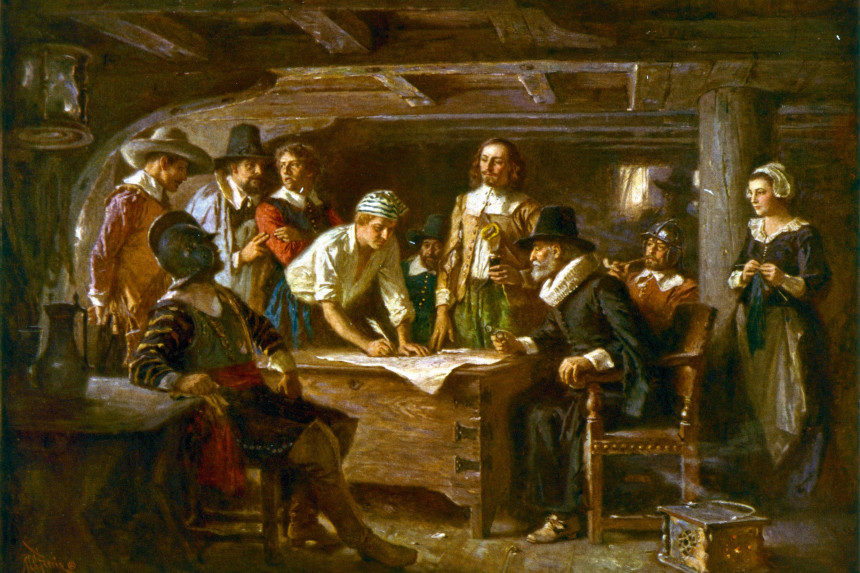

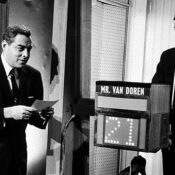
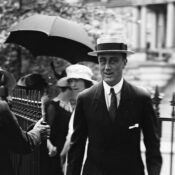
Comments
This is a very timely article in 2020 because so many of the problems (I hate the denial word issues) we’ve had just this year alone, go back that far. Terrible injustices from 1620 and obviously even earlier that our nation has never fully come to grips with, and it’s been a really bad thing.
Our country can never fully live up to its potential until we fix these problems. What’s so discouraging (to me anyway) is this country never fully learns its lessons, or will seem to on some things, for awhile, then it’s back to square one again. Look how viciously brutal Washington (D.C.) has been to its own citizens, and still is during arguably the worst year yet in our 244 year history. No money for its citizens when they’re out of work due to no fault of their own, but all that matters is Wall Street, the corporations, the defense contractors keeping an endless war going in Afghanistan and Iraq. Endless trillions for them, but nothing for months for the American people at their wits end, losing or about to lose everything in Depression situations.
The above is all the two parties care about because they’re bought and paid for. Other nations put their people first financially, and have continued to since the pandemic began. We’re called The United States (at least in name and geographically) but don’t act like it. Our dysfunctional leaders are on a pre-school age level.
If things finally start happening for the millions in need with stimulus, UI, etc. its because the pandemic is SO completely out of control they’re literally being forced to. If the government had kept the momentum going of last spring, things wouldn’t be so tragic financially for our people. This is what I mean as an example of actually doing the right thing, but then stopping. Lesson NOT learned. Not rocket science. The money is OUR money, and it was going straight back into the American economy where everyone would benefit, and was until it stopped. Other nations were aware the pandemic hadn’t stopped, and never stopped taking care of their people and still are. Even retro-ing money back now is too little too late. There’s no fixing the huge damage done by no money for 5 months!!
Meanwhile we have these haphazard standards from state to state on wearing the mask or not at this late date. Opening then closing pattern for businesses (many gone forever) and schools is insane. A huge segment of the public are completely disregarding the pleas of the CDC experts on not travelling now. How many more people have to die at this point? So here again we have a nation that not only hasn’t learned lessons going back 4 centuries, they haven’t learned from all the super spreader events widely reported over the past 4 MONTHS! Selfishness of our people, killing our own people with Covid, our front line workers, doctors, medical staff; our hospitals at full capacity even before Thanksgiving. God help you if you need hospitalization in the coming months; are in any kind of accident. A severe national lockdown is likely looming.
So I don’t know at this point what can be done. What our government hasn’t already destroyed, many of our own citizens are finishing the job. We have a new administration coming in that likely will be undermined by the previous one as we’ve seen this month. Even before that there’s Christmas and (the brain dead) New Years Eve super spreaders, then the Super Bowl! This country is going to have to somehow get on the right path of the common good to ever get itself out of this mess, and learn, so it never happens again!
An example of ‘never again’ is the persecution of the Jews by Hitler and the horrors of Auschwitz and more; too much to get into here. They will never let that happen to them again, and keep their guards up so it doesn’t. I would hope America (the government and people) would never let a 2020 happen again, across the board at any point in the future. At almost year’s end, I think many of us have learned, but a chain is only as strong as its weakest links. The selfish, thoughtless and greedy will always win out and ruin this country for the rest of us. Also, how do you fix the crippling fact that half of the nation’s wealth is in the hands of under 60 multi-billionaires? Yeah, we’re in a lot of trouble.